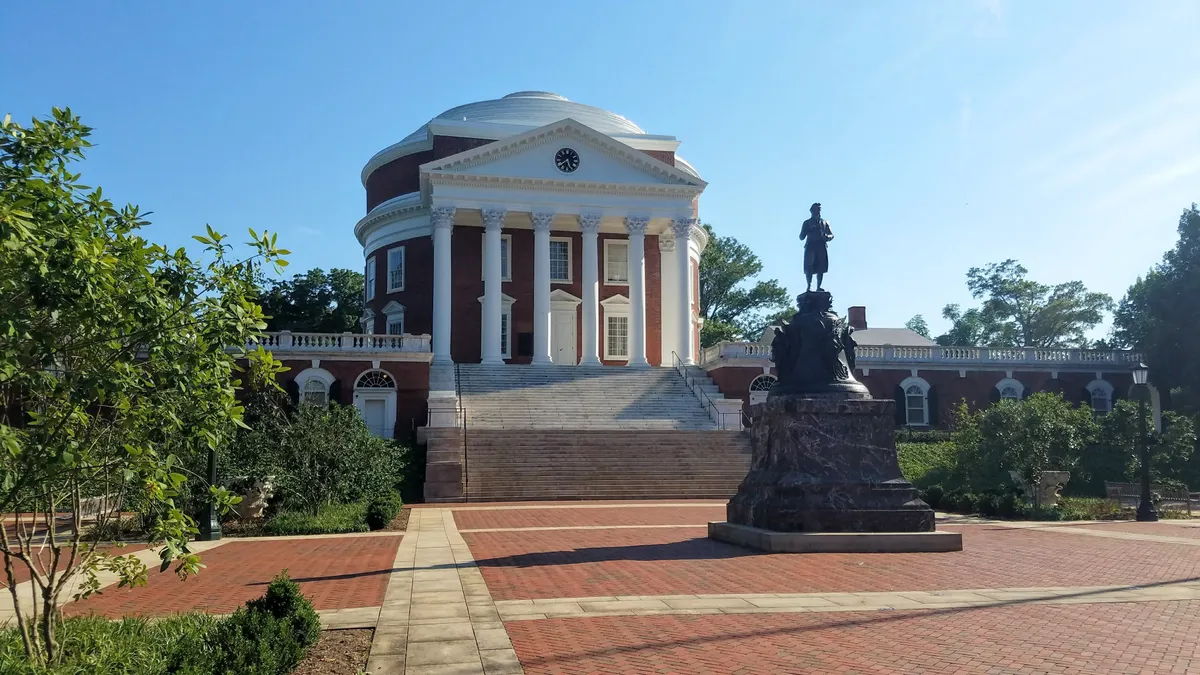Dive Brief:
- A $53 million increase in state funding will allow Virginia's public colleges to freeze tuition for in-state students in the coming year, marking the first such move in two decades, The Washington Post reported.
- Governing boards of the state's 15 public institutions voted this spring to keep tuition flat for in-state undergraduates, and in some cases for out-of-state enrollees. At the University of Virginia, the decision reversed a planned 2.9% tuition increase.
- James Toscano, president of Partners for College Affordability and Public Trust, a group that advocates for lower college costs, told the Post it was a "significant victory for students and families in Virginia," and marks a trend of state legislatures increasing funding for public institutions.
Dive Insight:
State funding cuts have been one of the biggest challenges for public colleges at a time when they face a number of other headwinds, such as declining enrollment and more competition online.
Last fall, the Center on Budget and Policy Priorities reported that state support for higher education decreased by $7 billion since the Great Recession, and as a result colleges are spending about 16% less per student than they were in 2008.
However, data shows funding is coming back to the states. State support for higher education rose 3.8% from the 2017-18 to the 2018-19 fiscal years, according to the latest annual data from Illinois State University's Grapevine report.
The gains weren't uniform, however. Funding increased by less than 1% in six states during the period, including in Delaware and Indiana, while it rose by 5% or more in 11 states, including in South Carolina and Utah. Additionally, funding levels remained flat or decreased in six states, including Kentucky and Minnesota.
As in Virginia, some legislators have tied funding increases for their state's higher education systems to cap tuition prices. Last week, South Carolina lawmakers raised higher education funding by $36 million with a promise that institutions would not increase tuition beyond what is necessary to cover health insurance and pension costs, The State reported.
And in Minnesota, the Twin Cities Pioneer Press reported, the $150 million dedicated to higher ed funding in the state's new budget won't be sufficient to prevent tuition increases at public institutions.













